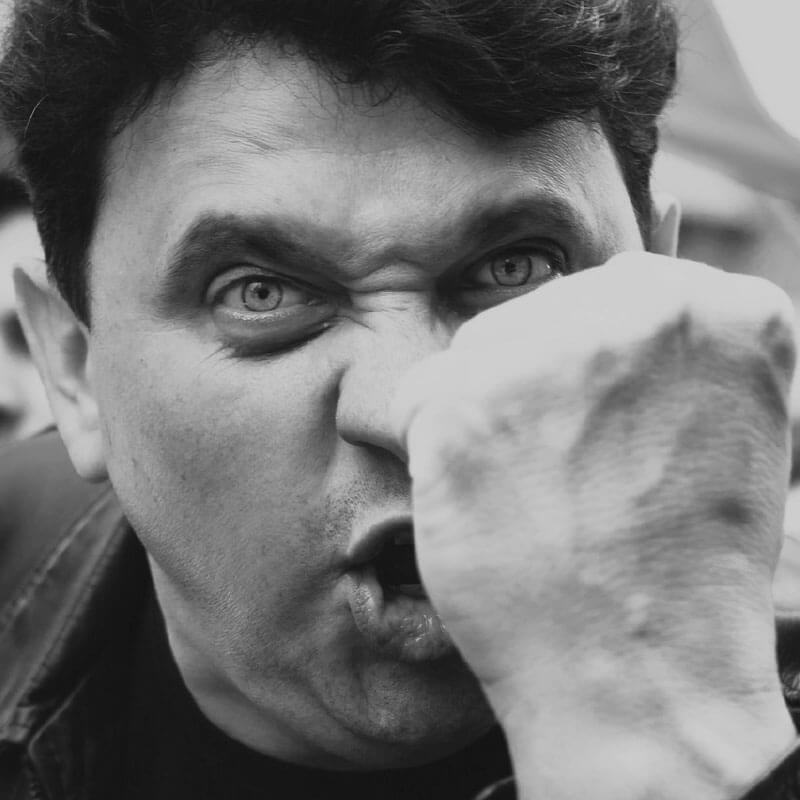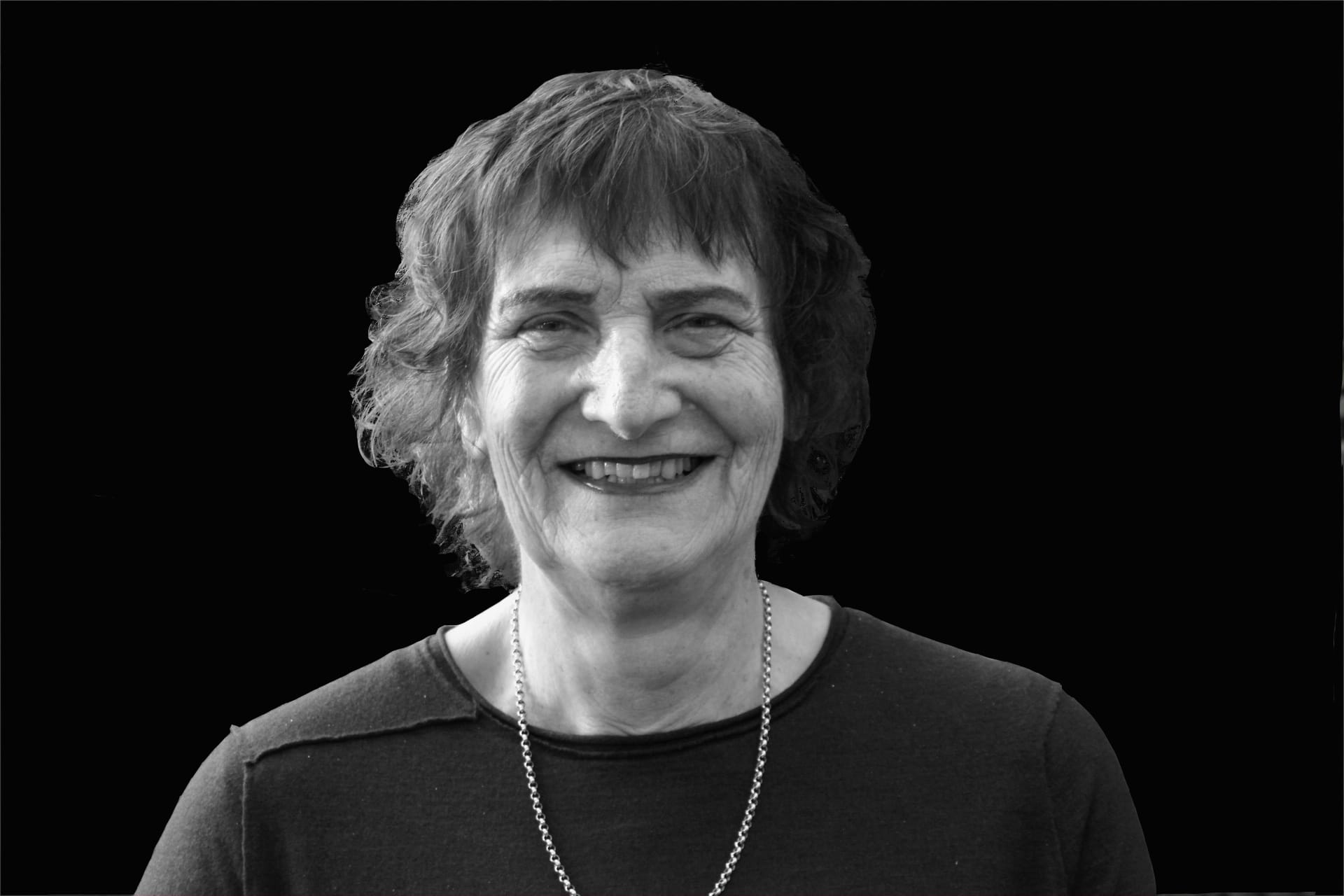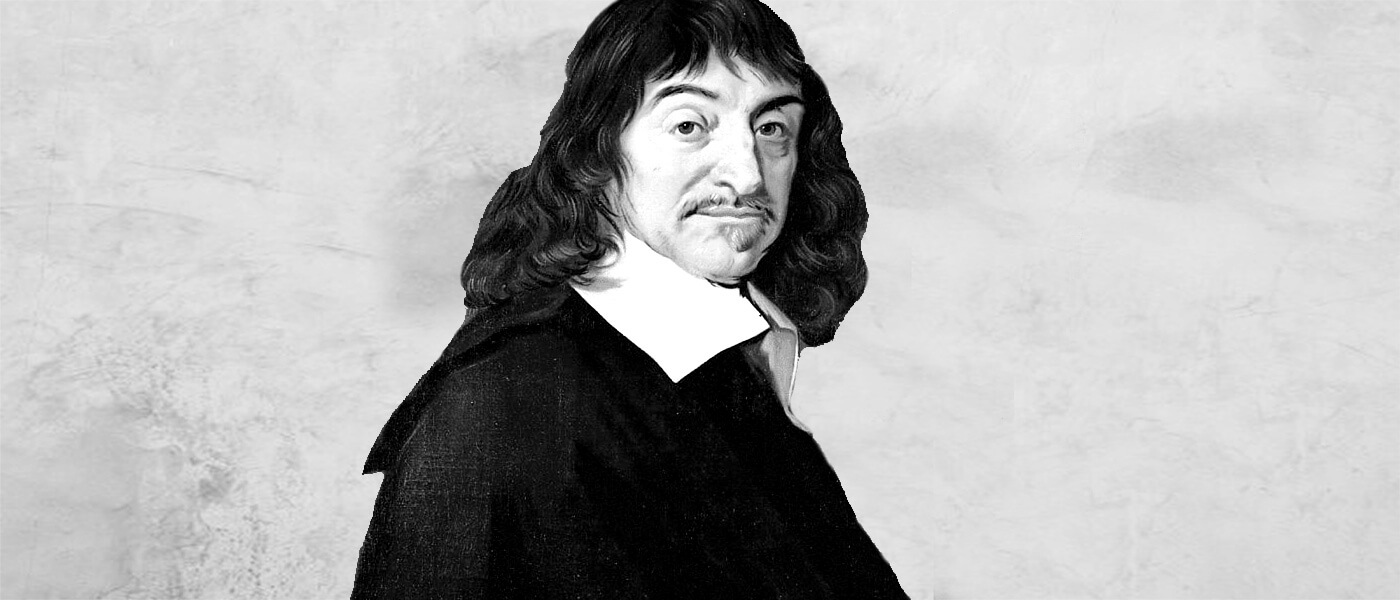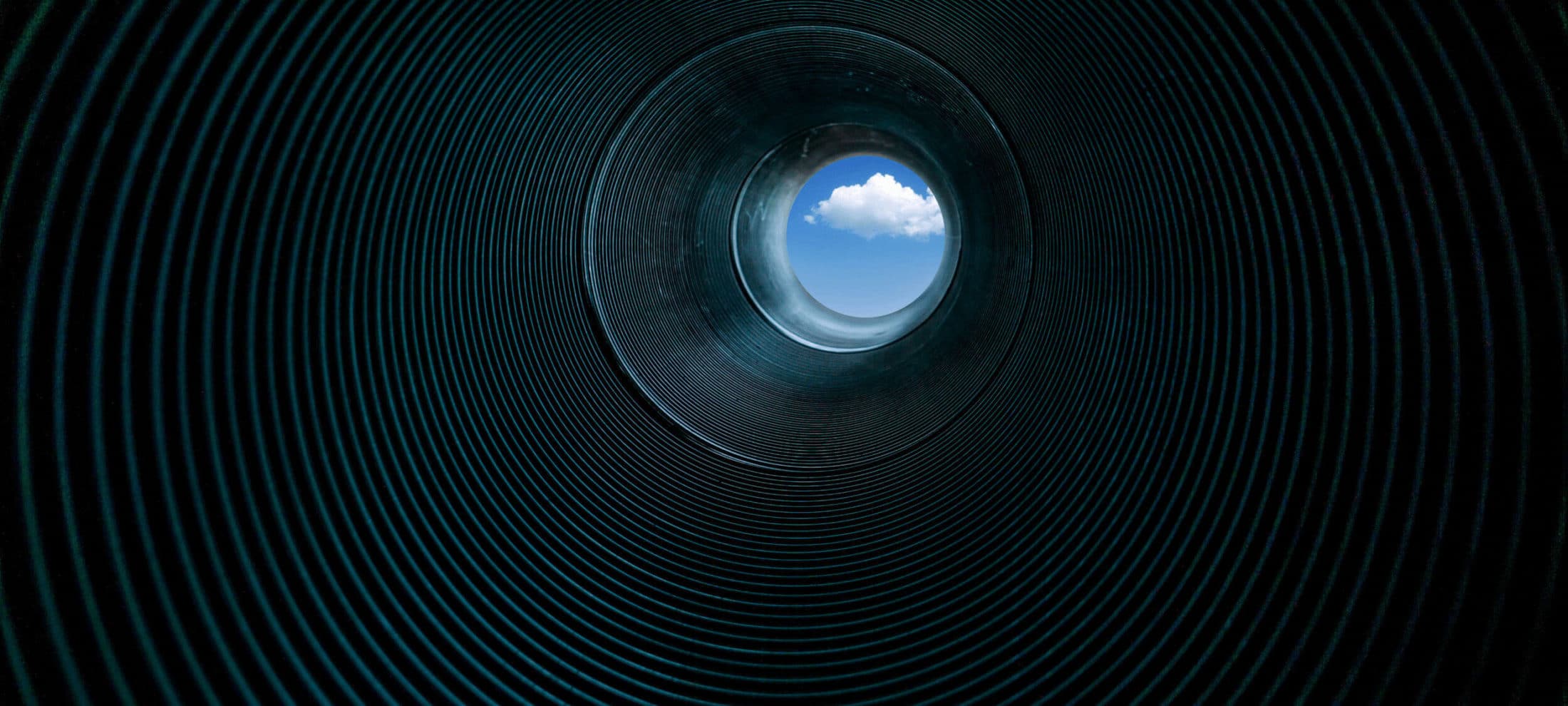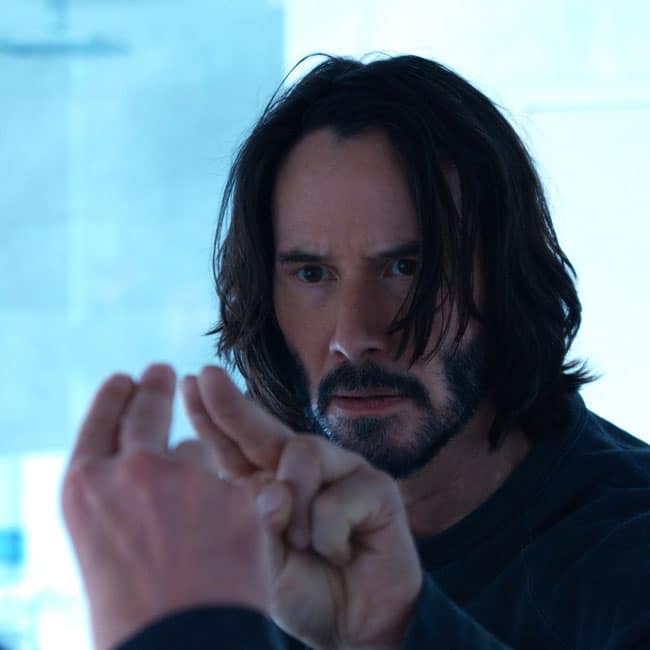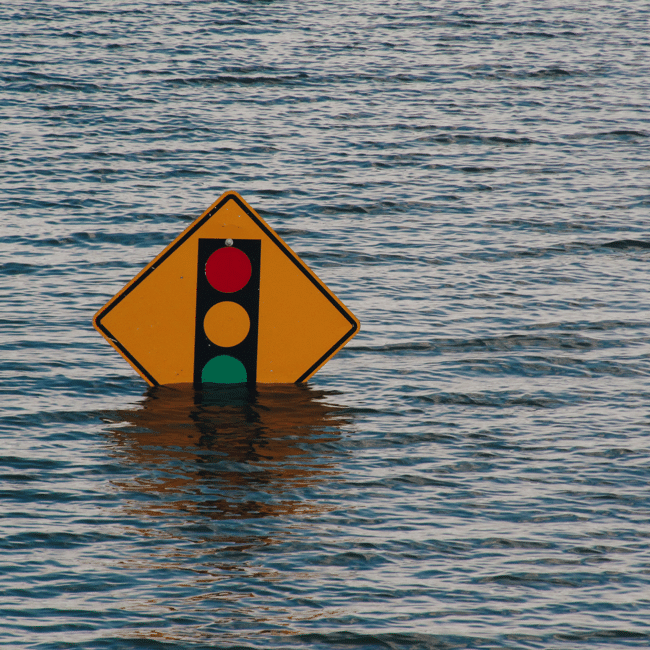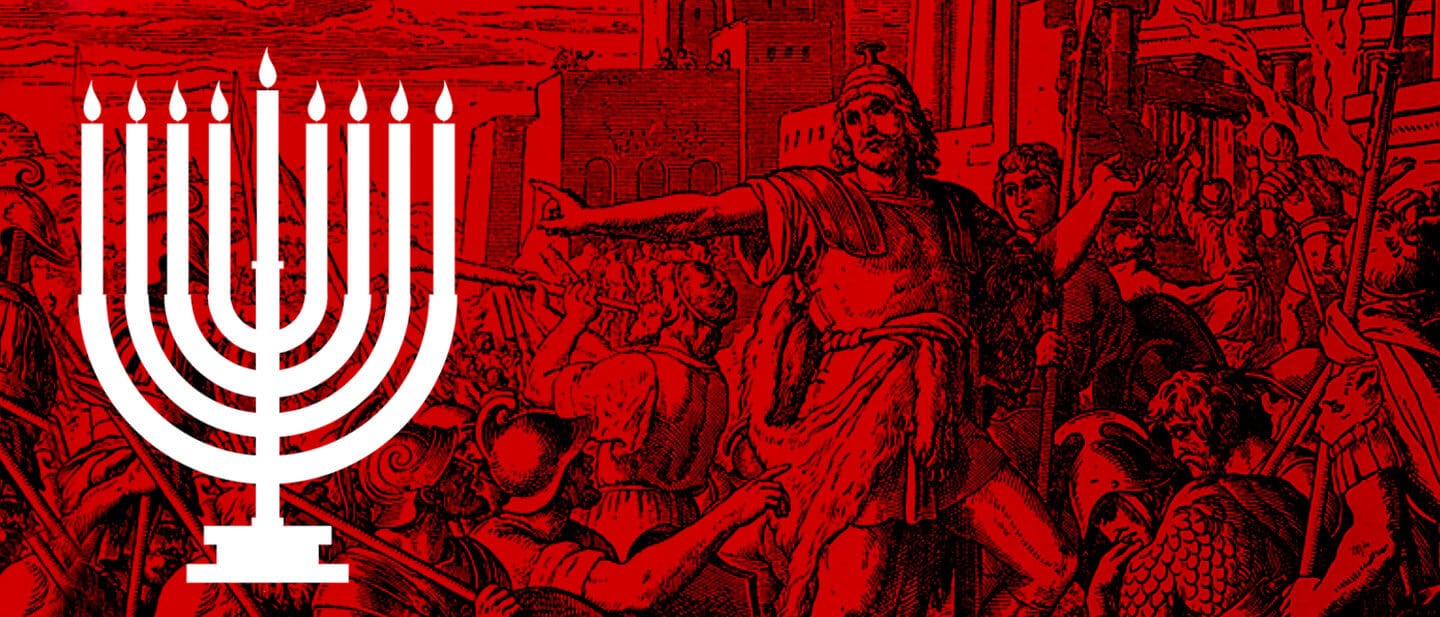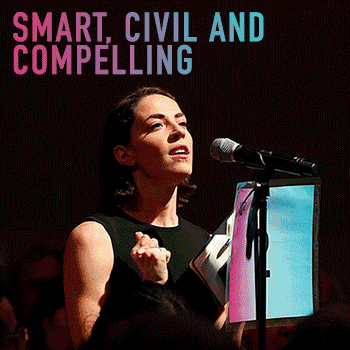Big Thinkers: Laozi and Zhuangzi
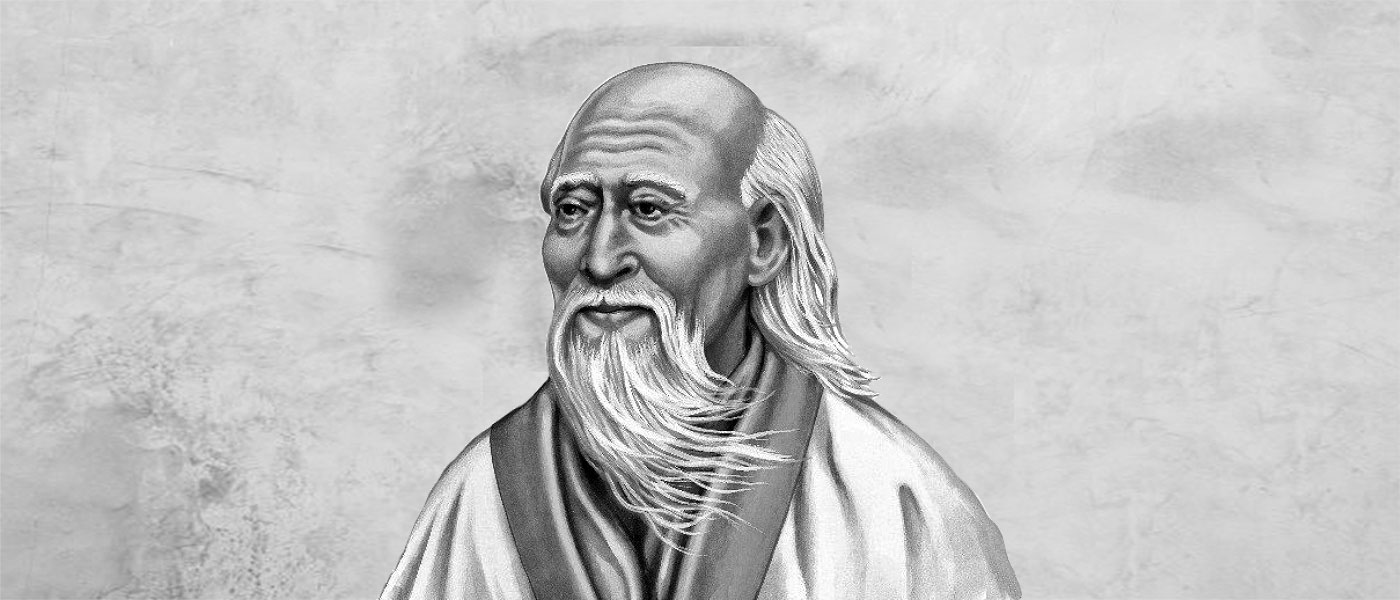
Daoism is one of the three pillars of Chinese philosophy, and its founders Laozi and Zhuangzi implore us to unshackle ourselves from the constraints of the way we think and live a spontaneous, authentic life.
When many of us think of “philosophy”, we conjure images of toga-wearing Greeks debating in the agora in Athens. Or Renaissance thinkers like René Descartes contemplating consciousness in his armchair. Or perhaps Simone de Beauvoir and Jean-Paul Sartre smoking Gauloises in the cafés of post-war Paris.
But there is another tradition of philosophy that comes out of China that is just as deep and diverse, with just as long a history. It has considered many of the same questions as Western philosophy, such as the nature of reality, the possibility of knowledge and how to live a good life, but has sought to answer these questions in very different ways to many Western thinkers.
There are generally considered to be three pillars to Chinese philosophy: Confucianism, Daoism and Buddhism. All three have mixed and intermingled over centuries to deeply influence Chinese culture and thinking to this day.
Daoist spontaneity and playfulness
In many ways, Daoism was a reaction against Confucianist thinking, which has strict rules on how we are supposed to live our lives, on the social roles and responsibilities we are supposed to take on, and has a strong emphasis on order and ritual. Daoism was a total rejection of these things, and is much more about living spontaneously, intuitively and experiencing a direct connection with nature and existence.
Daoism has two great masters, Laozi, who wrote the Daodejing, and Zhuangzi, who wrote the eponymous Zhuangzi. Both of these thinkers are believed to have lived between the 6th and 4th centuries BCE, but while there are many stories about their lives, it’s difficult to separate fact from legend.
Both the Daodejing and the Zhuangzi are very playful texts, quite unlike most Western philosophy. Instead of outlining abstract theories supported by dry logical arguments, both were written in the form of sayings or stories that are often irreverent or absurd. They encourage the reader to reflect on life in a creative rather than analytic way.
For example, there’s a passage where Zhuangzi wakes up after dreaming he was a butterfly. But then he can’t be certain that he’s not right now a butterfly dreaming he’s a man. A similar sentiment was expressed by René Descartes, although far less poetically.
The three daos
The term “dao” itself is often translated to mean “way” or “path,” but it’s not an easy concept to pin down, which is by design. In a sense, the dao is like the natural order of the world, and following the dao is to be living in accordance with nature.
There are typically considered to be three daos:
- The human dao: the world of words, judgements and society
- The natural dao: the natural processes and regularities of the world, like the laws of nature
- The grand dao: the sum total of all things in the universe
These have a complex relationship, and Laozi wanted to make sure we don’t make the mistake of thinking the human dao is the only dao there is. For while we automatically use words and concepts to carve the world up into discrete things, nature itself is continuous. And while we can be judgemental, nature itself is free from judgement.
A central tenet of Daoism is embracing these opposite and contradictory states simultaneously. We can see some if this reflected in the yin/yang symbol, taijitu. It is at once a unitary thing, but it’s also composed of two opposites: the yin and the yang. This can be interpreted as representing the divisions that emerge within human thought – the separation of the one natural world into light/dark, hard/soft, active/passive, good/bad – but also shows how these things are complementary and all part of a greater whole.
There are even some Western thinkers who have wholeheartedly embraced this notion of complementarity. Notably, the Danish quantum physicist Niels Bohr argued that the seemingly contradictory quantum and classical accounts of reality weren’t in opposition but were complementary. He even chose the taijitu symbol for his coat of arms when he was knighted by the King of Denmark.
Many of the lines in the Daodejing and Zhuangzi challenge us to unshackle ourselves from the human dao and to contemplate the natural and the grand dao, and to realise that they’re all really one and the same.
For example, one translation of the opening line of the Daodejing is “the dao that can be spoken is not the true dao.” (In Chinese, it’s even more obtuse, being: “the dao that you can dao is not the true dao”.) If that’s so, then why speak or write this at all? And yet this realisation could only have come from writing this in the first place. Thus does a core paradox of daoism enter our minds to do its noble work.
Just be
Daoism teaches us to practice emptiness and non-action, which sits in stark contrast to many philosophical traditions that teach us to fill our minds with knowledge and to act with intent. Daoism tells us that things in the world just are, we are also in the world and just are, but we have this irritating habit of forgetting to just be and instead think and reflect on what we are, and then are guided by what we think we are instead of just being what we really are. It’s that simple.
“Therefore the sage dwells in the midst of non-action and practices the wordless teaching” – Laozi
Laozi and Zhuangzi are often cheeky, irreverent, playful and inscrutable. In a way, they are urging us to encounter nature directly, not mediated by words, and definitely not by rituals and rigid social roles.
This is not an easy thing to do, which is why the text encourages – or nags – us to snap us out of our complacent reliance on abstract concepts rather than experience concrete reality.
Dr Tim Dean is a philosopher, writer, honorary associate with the University of Sydney, editor of the Universal Commons, and faculty with The School of Life.
Ethics in your inbox.
Get the latest inspiration, intelligence, events & more.
By signing up you agree to our privacy policy
You might be interested in…
Opinion + Analysis
Politics + Human Rights, Relationships
We’re being too hard on hypocrites and it’s causing us to lose out
Opinion + Analysis
Society + Culture, Relationships
Where is the emotionally sensitive art for young men?
Opinion + Analysis
Health + Wellbeing, Politics + Human Rights, Relationships
CoronaVirus reveals our sinophobic underbelly
Explainer
Relationships
Ethics Explainer: Akrasia
BY Dr Tim Dean
Dr Tim Dean is Philosopher in Residence at The Ethics Centre and author of How We Became Human: And Why We Need to Change.
Big Thinker: Buddha
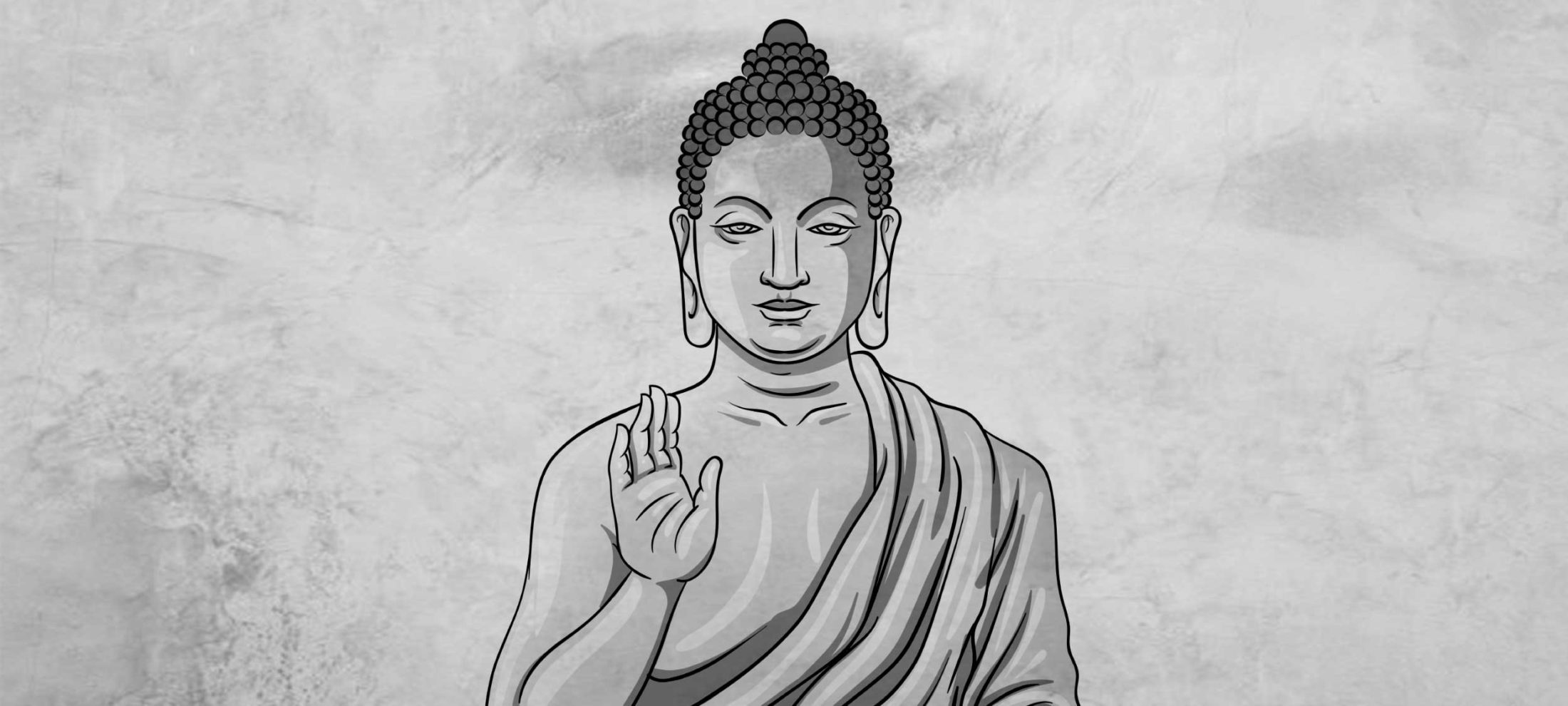
Gautama Buddha lived during the 5th century BCE and was the founder of the Buddhist religion. He also developed a rich philosophical system of thought that challenged notions of permanence and personal identity.
Buddhism is typically considered a religion but it also has a strong philosophical foundation and has inspired a rich tradition of philosophical inquiry, especially in India and China, and, increasingly, Western countries.
Buddhism emerged from the teachings of Siddhartha Gautama, an Indian prince who turned his back on a life of leisure and opulence. Instead, he sought to understand the causes of suffering and how we might be able to be liberated from it.
Coincidentally, Gautama Buddha lived around the 5th Century BCE, which is at a similar time to two other great philosophers in different corners of the world – Socrates in Ancient Greece and Confucius in China – both of whom sparked their own major philosophical traditions.
Desire, happiness and suffering
Like many philosophers – from Aristotle to Peter Singer – one might say the Buddha was interested in how to live a good life. The starting point of his teachings is that life is suffering, which sounds like a pessimistic start, but he was just reminding us none of us can escape things like illness, death, loss, or these days, doing our tax returns.
Buddha went on to explain suffering is not random or uncaused. In fact, he argued if we can come to understand the causes of suffering, then we can do something about it. We can even become liberated from suffering and achieve nirvana, which is a state of pure enlightenment.
Many philosophers believe this teaching is just as relevant today as it was over 2,000 years ago. We’re told today that we ought to be happy, and that happiness comes from being able to satisfy our desires. Our entire economy is predicated on this idea. So we work hard, earn money, get stressed, buy more stuff, yet many of us can’t seem to find deeper satisfaction.
It turns out that no matter what desires we satisfy, there are more desires that crop up to take their place. And there are some desires that never go away, like the desire for status or wealth, and some desires that can never be satisfied, like when we experience unrequited love. And when we can’t satisfy our desires, we experience suffering.
The Buddha said this is because we have our theory of happiness backwards. Happiness doesn’t come from satisfying ever more desires – it comes from reducing our desires so there are fewer that need to be satisfied. It’s only when we desire nothing and we can just be that we are truly free from suffering.
Thus the Buddha argues our suffering is not caused by the whims of an indifferent world outside of our control. Rather, the cause of suffering is within our own minds. If we can change our minds, we can find liberation from suffering. This led him to develop a theory of our minds and how we perceive reality.
Permanence
He said that one of the fundamental mistakes in the way we think about the world is to believe in the permanence of things. We assume (or desire) that things will last forever, whether that be our youth, our possessions or our relationships with loved ones, and we become attached to them.
So when they inevitably erode, decay or disappear – we grow old, our possessions wear out, our loved ones move on – we suffer. But this suffering is only because we failed to realise that nothing is permanent, that all things are in flux, and if we can come to enjoy things without being attached to them, then we would suffer less.
Tibetan Buddhist monks have a ritual where they spend weeks painstakingly creating incredibly detailed and beautiful mandalas made out of coloured sand. Then, once they’re finished, they ritualistically sweep the sand away, destroying the mandala, and drop the collected sand into a river to flow back into the world, representing their embrace of impermanence.
The self
Another core philosophical insight from Buddhism was to question our sense of self. It’s natural to believe there is something at the core of our being that is unchanging, whether that be our soul, mind or personality.
But the Buddha noted when you try to pin down what that permanent aspect of ourselves is, you find there’s nothing there, just a stream of impressions, thoughts and feelings. So our sense that there is a persistent self is ultimately an illusion. We are just as dynamic and impermanent as the rest of the world around us. And if we can realise this, we can release ourselves from the pretense of what we think we are and we can just be.
Interestingly, this is very similar to an observation made by the 18th century Scottish philosopher David Hume, who said when he introspected, he could never settle on the solid core to his self. Rather, his self was like a swarm of bees with no boundary and no hard centre, with each being an individual thought or experience. The Buddha would likely have enjoyed this analogy.
Meditation
One of the aspects of Buddhism that has had the most lasting impact is the practice of meditation, particularly mindful meditation. The recent mindfulness movement is based on a form of Buddhist meditation that encourages us to sit quietly and let our thoughts come and go without judgement. Essentially, we must ignore our thoughts in order to control and be free from them. Modern science has shown that this kind of meditation can reduce stress and improve our focus and mood.
Buddhism is not only the fourth largest religion in the world with over 500 million adherents today, and third largest in Australia, but it continues to be a rich vein of philosophical inquiry.
Western philosophy was rather slow to take Buddhism seriously, but there are now many Western philosophers who are engaging with Buddhist ideas about reality, knowledge, the mind, the self and ethics.
Ethics in your inbox.
Get the latest inspiration, intelligence, events & more.
By signing up you agree to our privacy policy
You might be interested in…
Opinion + Analysis
Relationships, Society + Culture
The Bear and what it means to keep going when you lose it all
Opinion + Analysis
Relationships
Courage isn’t about facing our fears, it’s about facing ourselves
Opinion + Analysis
Politics + Human Rights, Relationships
Adoption without parental consent: kidnapping or putting children first?
Opinion + Analysis
Health + Wellbeing, Relationships
Mutuality of care in a pandemic
BY Dr Tim Dean
Dr Tim Dean is Philosopher in Residence at The Ethics Centre and author of How We Became Human: And Why We Need to Change.
Big Thinker: Friedrich Nietzsche
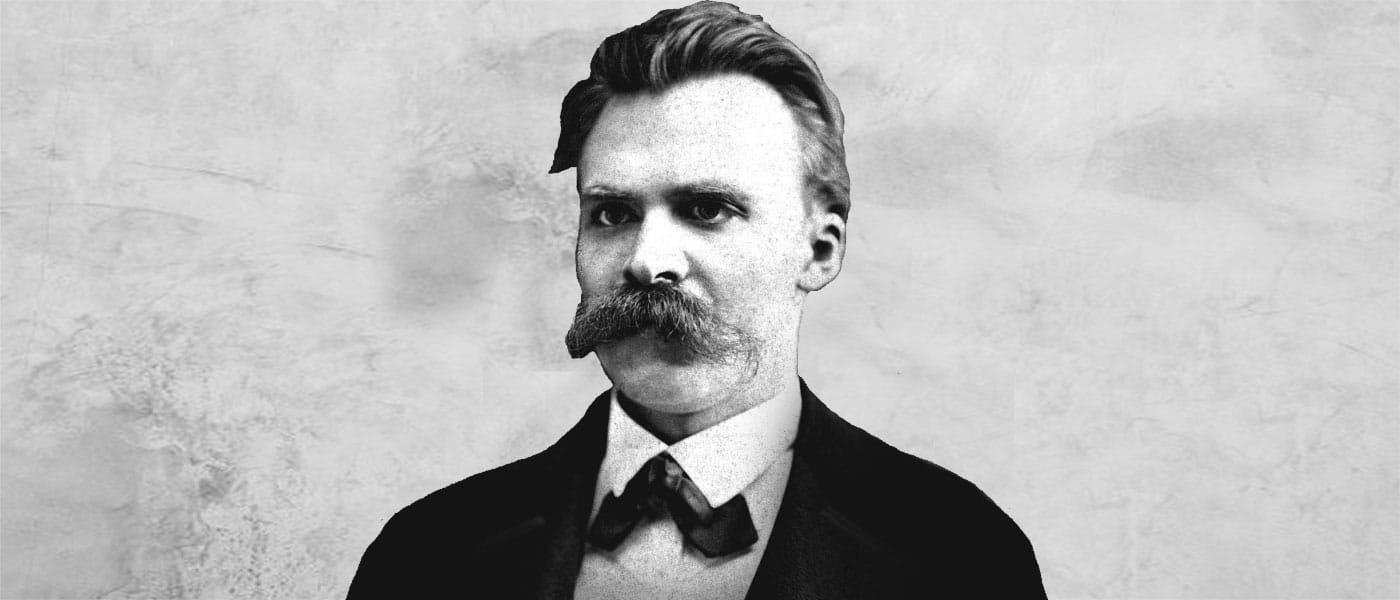
Friedrich Nietzsche (1844—1900) is one of the most controversial figures in contemporary philosophy.
A German philosopher and cultural critic who is well known for his proclamations on God, truth, morality, power, aesthetics, the self and the meaning of existence, Nietzsche has had an enduring influence on Western philosophy.
Making use of a creative writing style, such as aphorisms and emotive essays, Nietzsche’s doctrines have been famously misappropriated by those seeking to further their own political ends (for example, Hitler and the alt-right). He was seen as an early existentialist because of his insistence on existence preceding essence, and the importance of looking to yourself – rather than God, society, family or friends – to identify what values you choose to live by.
Live your life like an artist
In Nietzsche’s first major work, The Birth of Tragedy (1872), the idea of living life creatively is embodied in his idea of living life as an artist. This involves combining two energies: the rational Apollonian and the passionate Dionysian. (In Greek mythology, Apollo is the god of logic and rational thinking, and Dionysus the god of instinct and emotion.)
Nietzsche worried the society of his time and classical thinkers like Socrates and Descartes– both Rationalists – only emphasised the Apollonian, neglecting the role of the Dionysian. Nietzsche thought it was important to balance our rationality with our sensual and passionate experience of life, and he saw this balance best depicted in ancient Greek tragedies.
Nietzsche insisted Greek tragedy achieves greatness through the inclusion of both Apollonian creative energy which is responsible for the dialogue, and Dionysian energy which inspires the music or chorus. In the plays, the two work together as the meaning of the words are enhanced by the accompanying melody. Using Greek dramatic artworks as an example, we can learn from great art to see the beauty in life.
“Without music, life would be a mistake.” – Nietzsche
The tragic spectator is united with others in the shared experience of being human. For Nietzsche, life without emotion, art and the creative energy of the Dionysian is bleak. A balance between Dionysus and Apollo allows for pluralistic and authentic modes of expression that are rational as well as creative. Aesthetic ideals also appear in his later writings, such as The Will to Power (1901), where Nietzsche writes, “Art as the redemptionof the man of action… Art as the redemption of the sufferer”.
Nietzsche advocated for a series of values or virtues we should adopt – namely, active, life affirming values, as opposed to the life denying or passive and ‘slave like’ values he detested. The latter he saw exemplified in the institutionalisation of Christianity, which, he believed, served to reinforce the power of the few at the expense of the many.
Believing the idea of a punitive God promoted by the church of his time to be a human invention, he famously declared:
“God is dead … And we have killed him.”
The Superman or Nietzsche’s Übermensch
Nietzsche emphasises an individualistic development and construction of self, summed up in the notion of the will to power. Claiming we ought to seek control over ourselves, Nietzsche holds up the Superman (yes, Nietzsche was misogynistic, but for our purposes we can extend this concept to include women), or Übermensch, as the pinnacle of human potentiality in terms of power and integrity in a broad sense of the word.
Nietzsche’s Übermensch is imagined as Zarathustra, a Christ-like figure who delivers an anti-sermon on the mount, a character with whom Nietzsche identifies. In The Gay Science (1882), it is the Superman who creates strengths out of his weaknesses and thus styles his character – a “great and rare art!”
This existentialist ideal – that each individual creates one’s self in a manner pleasing to them – threatens to collapse into extreme relativism or subjectivism. Yet, despite the fact the Superman goes “beyond good and evil”, Nietzsche is a moralist with definite views on what is condemnable.
“No one can construct for you the bridge upon which precisely you must cross the stream of life, no one but you yourself alone.” – Nietzsche
One way we are invited to test whether or not our chosen action is the right one is given to us in Nietzsche’s doctrine of eternal recurrence. “The Greatest Weight” in The Gay Science tells of a demon who confronts us, suggesting we must relive every single moment of our life, every choice and its consequences, eternally.
We are asked whether we would celebrate this as a gift or curse the unending misery it presents. The Superman would embrace the opportunity due to their authenticity and the fact they made each choice consciously, willing to accept full responsibility for their life.
Such a thought experiment offers an overly ambitious understanding of freedom and free will as a positive force. Yet it provides the reader with an interesting challenge when making decisions. Knowledge of an eternal recurrence would fundamentally change the way we lead our lives and inform the choices we make. If taken seriously, one could not help but try to act authentically – or, alternatively, not act at all.
Ever the rebellious teenager of philosophy, Nietzsche continues to give us pause for much thought, challenging us to live authentically and take unflinching responsibility for our lives.
Ethics in your inbox.
Get the latest inspiration, intelligence, events & more.
By signing up you agree to our privacy policy
You might be interested in…
WATCH
Relationships
What is ethics?
Explainer
Relationships
Ethics Explainer: Ad Hominem Fallacy
Big thinker
Health + Wellbeing, Relationships
Big Thinker: Temple Grandin
Opinion + Analysis
Relationships
Is masculinity fragile? On the whole, no. But things do change.
BY Dr Laura D’Olimpio
Dr Laura D’Olimpio is senior lecturer in philosophy of education at the University of Birmingham, UK, and co-edits the Journal of Philosophy in Schools.
Big Thinker: René Descartes
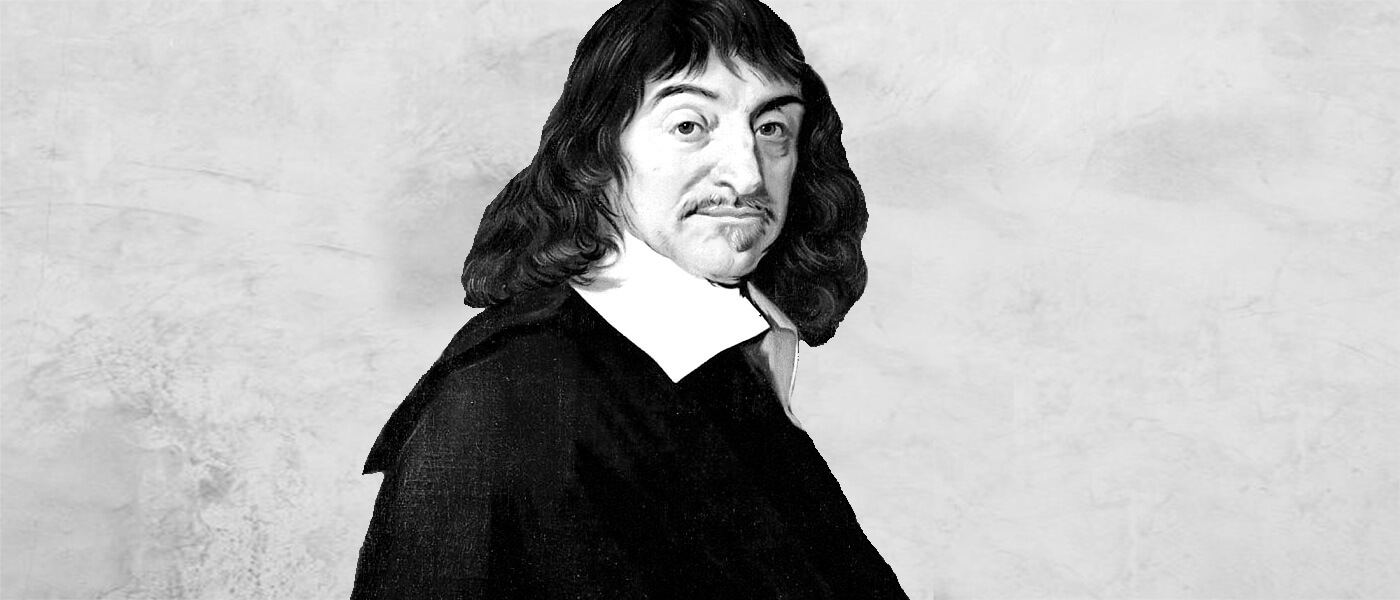
René Descartes (1596—1650) is famous for the phrase, “I think, therefore I am”. He was a Frenchman writing in the early 17th century and was preoccupied with the question: What can we know for certain?
Descartes details a method of doubt in his key text Meditations on First Philosophy, published in 1641. It becomes crucial for rationalists that seek infallible knowledge. Rationalists rest their epistemological claims on pure reason, without recourse to the senses or experience (unlike the empiricists). Epistemology is the philosophical study of knowledge.
At a time when scholars were writing in Latin, Descartes wrote in French so anyone who was literate in the common language of his place could read his work. His writing style is friendly and approachable, so it feels as though you are having a conversation with him. His sceptical inquiry into what we can know commences with the question:
Can my senses be trusted?
Descartes describes himself sitting in front of a log fire in his wood cabin, smoking a pipe and questioning whether or not he can be sure that he is awake and alert as opposed to asleep and dreaming. How can we know the difference, he asks, when sometimes, in our dream state, we feel as though we’re awake even though we’re not?
Using the first person point of view, Descartes ponders on the fact that he tends to use his senses to be sure he exists and that the world around him is real, but the senses can sometimes be deceived. Our eyes often play tricks on us – as proven by any optical illusion – so how can we trust something that tricks us even once?
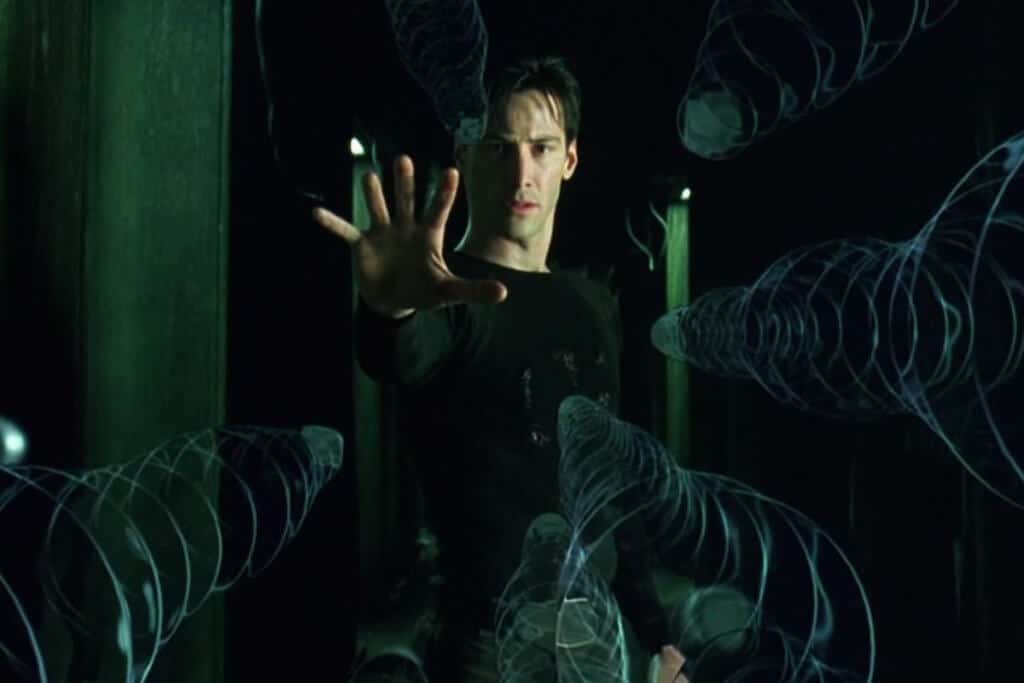
Cartesian scepticism (Cartesian being the adjective to describe the school of Decartes’ thought) concludes ultimately all I can be truly sure of is that I am a thinking thing. Descartes’ famously declared:
“Cogito ergo sum: I think therefore I am.”
Descartes posits the only thing I can be sure of is that I exist because even when I doubt that, there is an “I” doing the doubting. The “I” that thinks or doubts, must surely exist, he claims.
For Descartes the mind is more knowable than the body, and he equates the human Soul with the mind. For him, the mind is the essence of a person.
As a mathematician and a ‘natural scientist’ Descartes sought to prove that truths of the world were as immutable as rational, logical mathematic proofs. After he has proven that “I think, therefore I am” is as secure a foundation for knowledge as “1 + 1 = 2” Descartes goes on to use a thought experiment in order to consider whether we can be sure God exists.
The Evil Genius thought experiment
Descartes’ thought experiment of the evil genius asks us to imagine there exists, instead of an entirely good and powerful God, an entirely powerful, all-knowing Malevolent Demon. The idea here is that this Demon could make us think we are experiencing the world as it truly is, but we aren’t really. We could be tricked by this Evil Genius, and we may not be able to trust any knowledge we receive about the world from our senses. Ultimately Descartes relies upon an Ontological or Rational Argument to prove that God exists and if God exists, then we can trust our senses as God would not fool us in such a way as the Evil Demon might.
The incredibly powerful questions Descartes asks still inform many of our science fiction fears as we wonder whether or not the world truly is as it appears to us. We can still see the power of doubting and if we take this worry too seriously, we can imagine being paralysed with fear, unable to do anything! Many of us accept that our senses can be tricked but we know that we just have to go on trusting them anyway and hope for the best.
This sceptical method Descartes outlines whereby we check what we believe to be true and question what we assume to be real is useful if we think of it in terms of seeking evidence for the beliefs we are taught and the assumptions we hold. Considered in this way, Descartes offers us a great tool for self-reflection. However, if we take this thought experiment seriously we may never be sure that even we ourselves exist!
In the 18th century, David Hume suggested that even the assumption of an ‘I’ that doubts is an illusion. Hume says all we have to go on is a string of conscious experiences. Whether we are truly awake or dreaming right now is something we may not be able to answer with absolute accuracy, a doubt played out in famous films like The Matrix and Inception.
Ethics in your inbox.
Get the latest inspiration, intelligence, events & more.
By signing up you agree to our privacy policy
You might be interested in…
Explainer
Relationships, Society + Culture
Ethics Explainer: Beauty
Explainer
Relationships
Ethics Explainer: Moral Absolutism
Big thinker
Relationships
Big Thinker: Immanuel Kant
Opinion + Analysis
Relationships, Society + Culture
The Bear and what it means to keep going when you lose it all
BY Dr Laura D’Olimpio
Dr Laura D’Olimpio is senior lecturer in philosophy of education at the University of Birmingham, UK, and co-edits the Journal of Philosophy in Schools.
Big Thinker: bell hooks
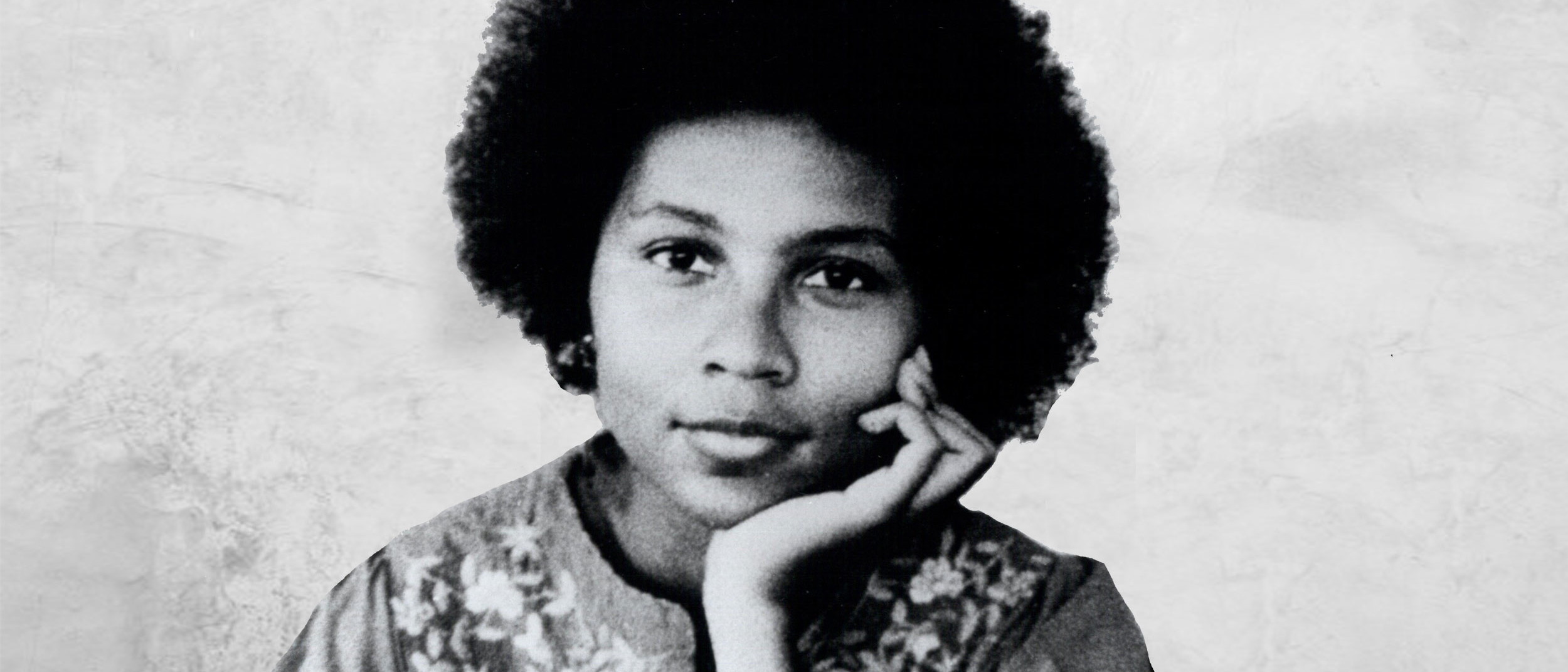
An outspoken professor, author, activist and cultural critic, bell hooks (1952-2021) drew attention to how feminism privileges white women’s struggles, while advocating for a more holistic way of understanding oppression.
Born Gloria Jean Watkins, bell hooks was a child who spoke back. Growing up in a segregated community of the south-central US state Kentucky, she fought against the ways in which her family and society sought to relegate her into a docile, black female identity. This refusal to be complicit in perpetuating her own oppression would define her life and career as a leader in black feminist thought.
It was when she first spoke back in public that she initially identified with her self-claimed moniker. An adult had dismissed her with a comparison to Bell Hooks, her maternal grandmother, in whose bold tongue and defiant attitude she found inspiration. She decapitalised the initials in order for others to focus on the substance of her ideas, rather than herself as a person.
hooks would become a prolific author and commentator. With notable titles including Talking Back, Ain’t I a Woman? and From Margin to Centre, her work scrutinises and challenges the ways in which media, culture and society uphold dominant oppressive structures.
Interlocking oppressions
A popular version of second wave feminism posited that all systems of oppression stemmed from patriarchy. This, hooks rejected. Instead, she introduced the idea that different types of oppression are interlocking and power is relational depending upon where you’re located on the matrix of class, sex, race and gender – which is not unlike the ideas underpinning the currently popular intersectional feminism.
hooks invented the term ‘imperialist white supremacist capitalist patriarchy’ to emphasise the multidimensionality of these power relations. She continues to use it today.
At the time, hooks’ paradigm was considered radical in that it undermined the notion there was a fundamentally common female experience. Many assumed this was vital for feminist solidarity to be forged and political unity maintained. Sisterhood was more complicated than that, hooks said – and to deny the uniqueness of each woman’s status and circumstance was another form of oppression.
Bold and to the point
While coming from academia, hooks strives to make her ideas easily accessible to a broad audience. Her writing style is free of jargon and often humorous, and she regularly appears in documentaries, open venues and television talk shows.
hooks is also renowned for focusing a sharp critical lens on popular culture, showing a strong opposition to political correctness. She’s criticised Spike Lee’s films, media coverage of the OJ Simpson trial and the lauded basketball documentary Hoop Dreams.
She also hasn’t held back her thoughts on prominent feminists.
hooks criticised Madonna for repudiating feminist principles by chasing stardom, and fetishising black culture in her film clips and live shows while reinforcing stereotypes of black men as violent primitives in a 1996 interview.
Twenty years later, she called the pop queen of lady power Beyoncé an ‘anti-feminist terrorist’, citing concern over the influence sexualised images of her have on young girls.
hooks also expressed disappointment Michelle Obama positioned herself as the nation’s ‘chief mum’, saying that by effacing her identity as an Ivy League educated lawyer, she was appeasing white hatred.
Oppositional gaze
Laura Mulvey introduced the theory of the ‘male gaze’ in the ’70s. It explains how images – particularly Hollywood mainstream images – are created to reproduce dominant male heteronormative ways of looking. hooks, who was fascinated with film as the most ‘efficient’ ideological propaganda tool, coined an associated term on black spectatorship: the ‘oppositional gaze’.
Looking has always been a political act, hooks argued. For subordinates in relations of power, looks can be “confrontational, gestures of resistance” which challenge authority. Had a black slave looked directly at a white person of status, they risked severe punishment – even death. Yet “attempts to repress our/black people’s right to gaze had produced in us an overwhelming longing to look, a rebellious desire, an oppositional gaze,” writes hooks.
“By courageously looking, we defiantly declared: ‘Not only will I stare. I want my look to change reality.’”
Black spectatorship of early Hollywood cinema was processed through this oppositional gaze. It was abundantly clear to these viewers, hooks writes, that film reproduced white supremacy. They saw nothing of themselves reflected in this white-washed fantasy realm. Black independent cinema emerged as an expression of resistance.
At the same time, hooks saw television and film as a site where black viewers were able to subject white representations to an interrogative gaze. Carried out in the privacy of the home or in a darkened cinema, this action also carried no risk of reprisal. That black men could look at white female bodies without fear was hugely significant – it was only 1955 when 14-year-old African American Emmett Till was lynched after being accused of offending a white woman in a Mississippi grocery store.
But while black male spectators “could enter an imaginative space of phallocentric power,” the experience of the black female spectator was vastly different, hooks writes. In both white and black productions, the male gaze still overdetermined screen images of women, and frequently idolised white female stars as the supreme objects of desire.
This continued the “violent erasure of black womanhood” in screen culture, making identification with any of the depicted subjects disenabling. While this denied black women the typical joys of watching, the fact that they “looked from a location that disrupted” meant that they could become “enlightened witnesses” through critical spectatorship.
Modern feminism in crisis
Despite the advances of women in the workplace, hooks nonetheless sees today’s feminism in a state of crisis. Firstly, she believes that we still haven’t addressed egalitarianism in the home, leaving women belittled and frustrated in heteronormative relationships.
She also believes that feminism today has lost its radical potential, in that it has converged too closely with radical individualism. Feminism does not mean that as a woman “you can do whatever you want, that you can have it all”, she says. Instead, if you’re to live inside a feminist framework, you need to undertake specific everyday actions. For this reason, hooks believes there are very few true living feminists.
Still, she remains a firm advocate of feminist politics, saying “My militant commitment to feminism remains strong…”
…and the main reason is that feminism has been the contemporary social movement that has most embraced self-interrogation. When we, women of color, began to tell white women that females were not a homogenous group, that we had to face the reality of racial difference, many white women stepped up to the plate. I’m a feminist in solidarity with white women today for that reason, because I saw these women grow in their willingness to open their minds and change the whole direction of feminist thought, writing and action.
This continues to be one of the most remarkable, awesome aspects of the contemporary feminist movement. The left has not done this, radical black men have not done this, where someone comes in and says, “Look, what you’re pushing, the ideology, is all messed up. You’ve got to shift your perspective.” Feminism made that paradigm shift, though not without hostility, not without some women feeling we were forcing race on them. This change still amazes me.
Ethics in your inbox.
Get the latest inspiration, intelligence, events & more.
By signing up you agree to our privacy policy
You might be interested in…
Opinion + Analysis
Relationships, Society + Culture
Nothing But A Brain: The Philosophy Of The Matrix: Resurrections
Opinion + Analysis
Climate + Environment, Politics + Human Rights, Relationships
A burning question about the bushfires
Opinion + Analysis
Relationships
We can help older Australians by asking them for help
Opinion + Analysis
Business + Leadership, Relationships
Employee activism is forcing business to adapt quickly
BY Kate Prendergast
Kate Prendergast is a writer, reviewer and artist based in Sydney. She's worked at the Festival of Dangerous Ideas, Broad Encounters and Giramondo Publishing. She's not terrible at marketing, but it makes her think of a famous bit by standup legend Bill Hicks.
BY The Ethics Centre
The Ethics Centre is a not-for-profit organisation developing innovative programs, services and experiences, designed to bring ethics to the centre of professional and personal life.
Big Thinker: Henry Thoreau
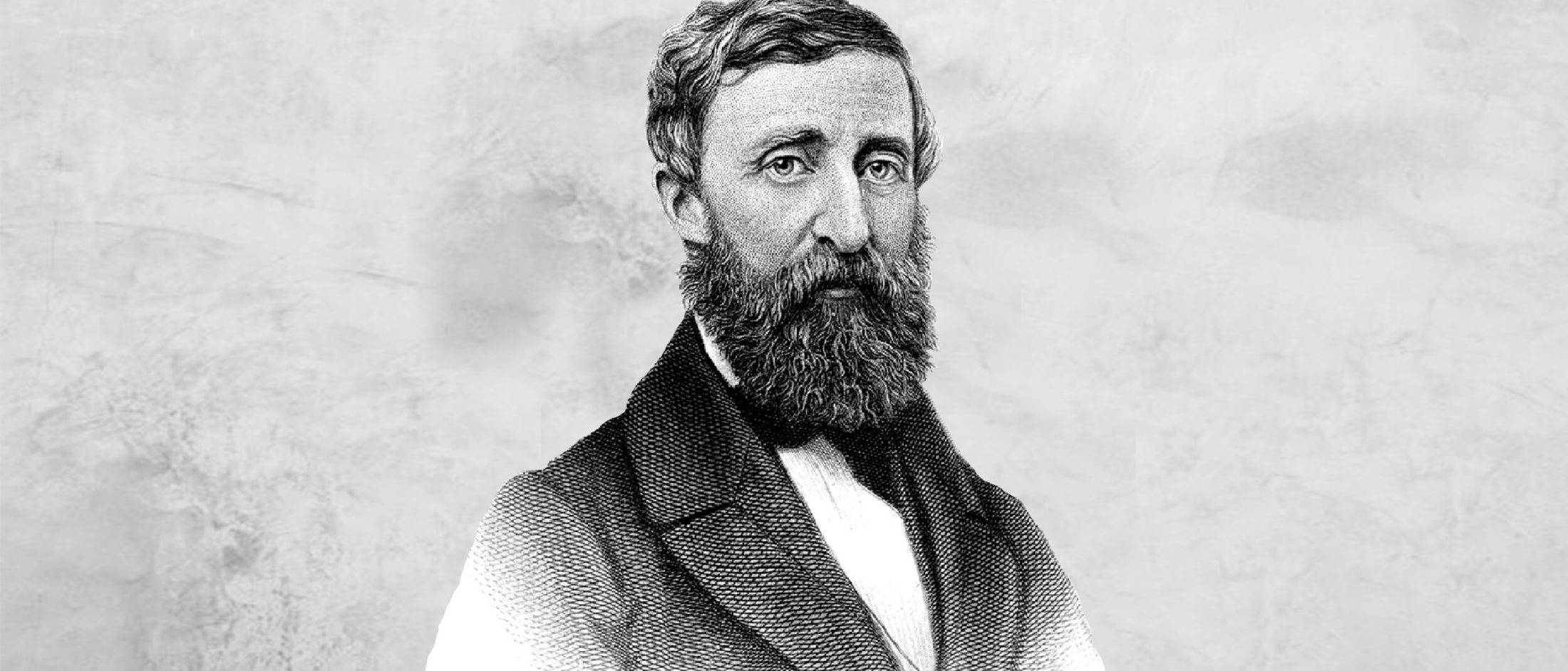
A tax evader, rebel philosopher and the grandfather of environmentalism, Henry Thoreau (1817—1862) practiced a back-to-nature experience of the natural world while opposing authority.
Though enjoying no great acclaim in his lifetime, today the name Henry David Thoreau resonates across philosophy, literature, political history, natural history and environmental science. His spirit of non-conformity, his rugged individualism and his ‘essentialist’ approach to living, have seen him mythologised as an American hero – and an ancestor of various ‘return to nature’ movements, too.
The son of a pencil maker, Thoreau was born in 1817 in Massachusetts, US. He demonstrated free minded dissent for institutions early in life. While at Harvard, he allegedly refused to pay for his diploma certificate. In his subsequent role as teacher, he rejected a recommendation for corporal punishment – by thrashing a random group of students to make a point, then resigning. Later, he would refuse to pay six years’ taxes. He saw it as surrendering his money to fund slavery and the government’s war in Mexico, both of which he vigorously opposed. For this, he was thrown in jail.
Civil Disobedience
Thoreau’s spirit of resistance coalesced in the libertarian manifesto Civil Disobedience. Unjust governments have no right bending citizens to their arbitrary laws and corrupt systems, he argued in the book. A free, enlightened state was only possible once that state “recognised the individual as a higher and independent power”, and enabled them to be “men first, and subject after”.
Rather than meekly obey, Thoreau said he was obliged “to do at any time what I think right” – even if that meant breaking the law. This idea of self-governance by individual conscience would later inspire Gandhi, Martin Luther King and others who took a principled stance against unjust rule.
It has also been widely critiqued. Violent and bigoted acts can, after all, easily be committed under the banner of self-righteousness. And what if two people divided on a matter by ideology or faith can’t settle their differences?
Lines in Civil Disobedience like, “That government is best which governs not at all” also make some question whether Thoreau’s libertarian politics tended towards anarchism.
Simple living, transcendentalism and the Walden experiment
A fellow resident of his home town, Ralph Waldo Emerson was a pivotal influence on Thoreau. He introduced Thoreau to transcendentalism – a movement which reacted against religious and intellectual trends, and enjoined each individual to forge their own “original relation to the universe”. Thoreau became a key figure in the movement. For him, solitude, simplicity, awareness and harmonious engagement with the wild were concrete ways to forge this relation. His philosophy as well as his science, insisted upon embodied understanding, rather than just a contemplative or discursive one.
In a forest cabin lent to him by Emerson, Thoreau conducted an experiment in simple living which would last two years and two months. His methods and reflections during this time became the classic work Walden – named after a pond which abutted the property. In it, with poetic eloquence, didacticism and free wheeling style, he lays out his view of a resigned, frivolous and wretched humanity, and how one is to instead rise above and “live deliberately”.
To achieve an existence which is pure and meaningful, Thoreau argued a life must be cultivated free from illusion and excess. He practiced a style of subsistence living through radical self-denial. Only essential needs were identified and met. A plausible misanthrope, he forswore conversation, sensuality, coffee, meat and alcohol, advising just one meal a day. To relinquish to the slightest temptation was to open the gates to moral disrepair. He even eschewed a doormat, “preferring to wipe my feet on the sod before my door.”
According to the American author John Updike, “Waldenhas become such a totem of the back-to-nature, preservationist, anti-business, civil-disobedience mindset, and Thoreau so vivid a protester, so perfect a crank and hermit saint, that the book risks being as revered and unread as the Bible”.
Kathryn Schulz reads Thoreau’s hermitage as rather a renunciation of responsibility, and categorises it as “original cabin porn”.
“Being forever on the alert”
Shorn of distractions, purged of indulgences, Thoreau believed a greater awareness of the universe can bloom. But more vital to his philosophy was an “ethics of perception” – requiring rigorous attentiveness to the outside world as it was uniquely registered on the senses. This could be observing a sunset’s reflection on glass, or the miniaturised battle of ants. Through this expanded and intensified focus, man was empowered to elevate his life, in “infinite expectation of the dawn”.
A surveyor by trade, Thoreau said we must consciously endeavour to practice “the discipline of looking […] at what is to be seen”.He was suspicious of orthodox forms of knowledge and believed the “essential facts of life” come to us through “the perpetual instilling and drenching of the reality that surrounds us”. Truth, then, was deeply individualised communion between self and world, and the product of intuition and revelation, rather than logic or reason.
Natural as intrinsically valuable
Thoreau’s ideas around nature’s intrinsic value have had significant bearing on modern conservationism. The sublime beauty and order that could be perceived in natural phenomena were not, he thought, qualities projected onto it by humans. They were immanent. What’s more, “Whatever we have perceived to be in the slightest degree beautiful is of infinitely more value to us than what we have only as yet discovered to be useful and to serve our purpose”.
In other words, nature cannot be commodified. Priceless, it must be viewed on its own terms, rather than as a resource to serve human agendas and needs. His view was diametrically opposed to the anthropocentricism that characterised the industrial revolution’s frenzied assault upon lands and oceans, which would culminate in the raft of ecological crises facing us today.
Thoreau also drew attention to the hidden benefits and invisible services of plant and animal species. In one example, he considered the squirrel. To the average American, they were a pest. But if we recognised squirrels in a broader ecosystem context, we could honour them as “planters of forests”, noble little workers whose free labour humans couldn’t do without.
Thoreau recognised, too, that our ignorance of these hidden benefits makes us careless. Trampling over nature’s bounty, upending its fragile balance, we are liable to do untold damage – for which we may ourselves pay a dear cost. In this sense, he was prescient.
“I should be glad if all the meadows on the earth were left in a wild state,” he wrote, “if that were the consequence of men’s beginning to redeem themselves.”
Ethics in your inbox.
Get the latest inspiration, intelligence, events & more.
By signing up you agree to our privacy policy
You might be interested in…
Opinion + Analysis
Climate + Environment, Politics + Human Rights
Are we prepared for climate change and the next migrant crisis?
Opinion + Analysis
Climate + Environment, Politics + Human Rights, Relationships, Society + Culture
The youth are rising. Will we listen?
Opinion + Analysis
Climate + Environment, Politics + Human Rights
Who is to blame? Moral responsibility and the case for reparations
Opinion + Analysis
Climate + Environment, Health + Wellbeing, Society + Culture
Melbourne Cup: The Ethical Form Guide
BY Kate Prendergast
Kate Prendergast is a writer, reviewer and artist based in Sydney. She's worked at the Festival of Dangerous Ideas, Broad Encounters and Giramondo Publishing. She's not terrible at marketing, but it makes her think of a famous bit by standup legend Bill Hicks.
Big Thinker: Temple Grandin
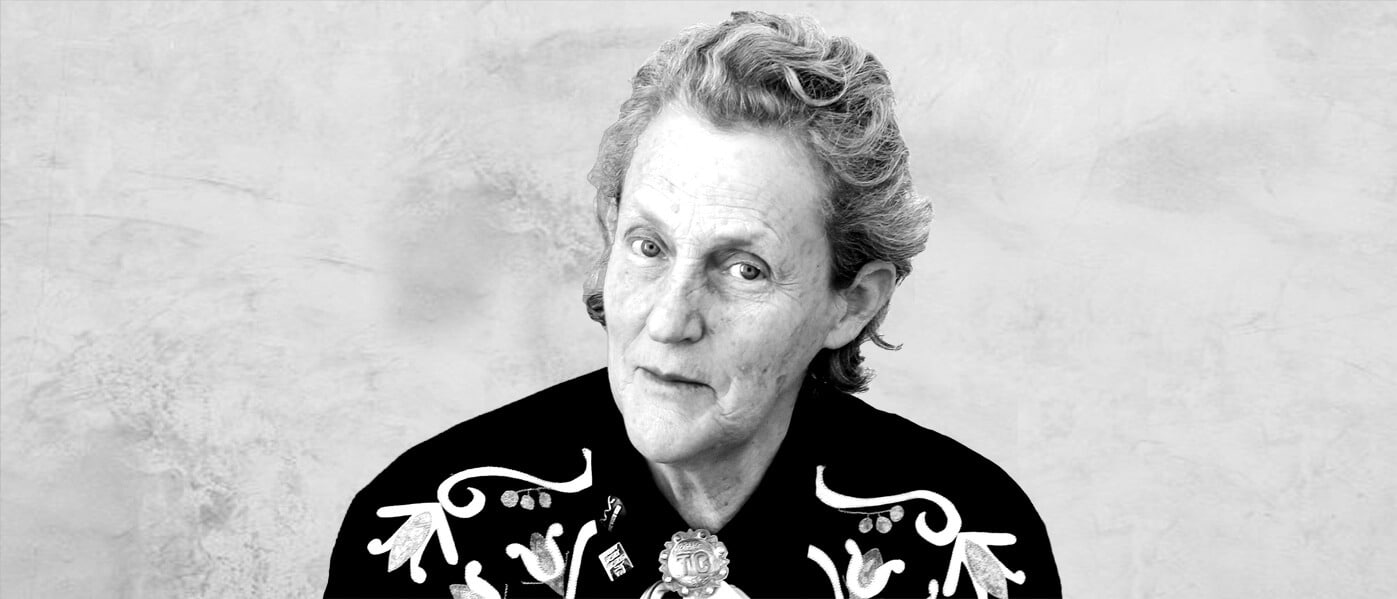
Big Thinker: Temple Grandin
Big thinkerHealth + WellbeingRelationships
BY The Ethics Centre 4 DEC 2018
Turning a perceived disability into a new way of solving problems, Temple Grandin (1947—present) has revolutionised the meat-processing industry and changed the way the world views autism.
Temple Grandin is an autism advocate and animal scientist who works to improve animal treatment in the livestock industry. Grandin has also changed public perceptions of autism, helping educators to maximise the strengths of those with autism, rather than focusing only on deficiencies.
An animal lover and meat eater, Grandin has used her autistic trait of “thinking in pictures” to design livestock facilities and educate meat produces on how to minimise animal suffering. As a result, she says there’s been ‘light years of improvement’ in an industry where half of all cattle in the United States are handled in facilities she designed.
This isn’t enough for some animal rights activists though, who accuse her of trying to soften the image of a ‘violent’ sector.
Thinking like a cow
Temple Grandin did not talk until she was three and a half years old. She struggled to communicate throughout her childhood, and other students bullied her at school.But there was one high school teacher, Mr Carlock, who saw something special in her. He mentored the troubled girl and encouraged her to study science.
Shocked by the cruelty she saw in abattoirs, Grandin combined her love for science and animals by fixating on designs to improve animal welfare in these facilities. Grandin knew she learned better by visualising, rather than reading and hearing long strings of words. In this respect, her thinking pattern was similar to animals, who don’t ‘speak’ a language.
She observed cattle in slaughterhouses, seeing how they responded to fear, senses, smells and visual memories. When cows can see they’re about to be killed, they panic, fall and injure themselves. To combat this, Grandin invented the curved loading chutes, which block their vision of what’s ahead, keeping them calm.
This not only improves animal welfare, it saves producers the cost of cattle death, injury and bruising – which also reduces the quality of meat. Grandin has spent her career designing livestock facilities to improve the way animals are treated.
In 1997, she worked with McDonalds after activists exposed animal torture on their production plants. She helped the fast food chain clean up cruel practices and restore its public image.
In 2010, Time Magazine named her one of the 100 most influential people in the world for her work in animal welfare.
We need autistic minds
Grandin has also changed public perceptions of autism, a condition relatively unknown when she grew up. She argues people on the autism spectrum – who tend to struggle with verbal communication but think in pictures – can provide more insight in certain fields than those who think in a more conventional mathematical way.
“Visual thinking is an asset for an equipment designer. I am able to ‘see’ how all parts of a project will fit together and see potential problems.”
Grandin encourages teachers to develop the strengths of autistic children, and has devised clever ways to combat perceived flaws.Like many on the spectrum, she is oversensitive to touch. “I always hated to be hugged”, she says.
So at age 18, she built a ‘squeeze machine’ – two hinged wooden boards lined with foam rubber, which allows users to control the amount and duration of pressure applied. Therapy programs across the United States continue to utilise squeeze machines, with research showing they help relieve stress in users.
Hero or villain?
While considered a hero in the autism community, Grandin’s work divides animal welfare activists. People for the Ethical Treatment of Animals (PETA), the world’s largest animal rights group, appreciate and publish her work. Others, like biologist Marc Bekoff, hold that no animal in captivity can enjoy a pleasant life. Bekoff would rather see Grandin encourage people not to consume factory farmed animals; to him, “‘slightly better’ isn’t good enough”.
“No animal who winds up in the factory farm production line has a good or even moderately good life.” – Marc Bekoff
Grandin’s retort is that without meat eaters, farm animals would have no life at all. She argues if animals are going to die anyway, it’s important to minimise their suffering.
Does this apply to humans too?
The New York Times once asked her if she’d consider helping to make capital punishment more humane. Her response was blunt.
“I have read things about the malfunctions of the electric chair… I know how to fix it, but I will not use my knowledge to have any involvement in that. I will not cross the species barrier to help kill people. Period.”
Ethics in your inbox.
Get the latest inspiration, intelligence, events & more.
By signing up you agree to our privacy policy
You might be interested in…
Opinion + Analysis
Health + Wellbeing, Relationships
Mutuality of care in a pandemic
Opinion + Analysis
Relationships, Society + Culture
Greer has the right to speak, but she also has something worth listening to
Opinion + Analysis
Relationships
The historical struggle at the heart of Hanukkah
Opinion + Analysis
Relationships, Science + Technology
To fix the problem of deepfakes we must treat the cause, not the symptoms
BY The Ethics Centre
The Ethics Centre is a not-for-profit organisation developing innovative programs, services and experiences, designed to bring ethics to the centre of professional and personal life.
Big Thinker: Ayaan Hirsi Ali
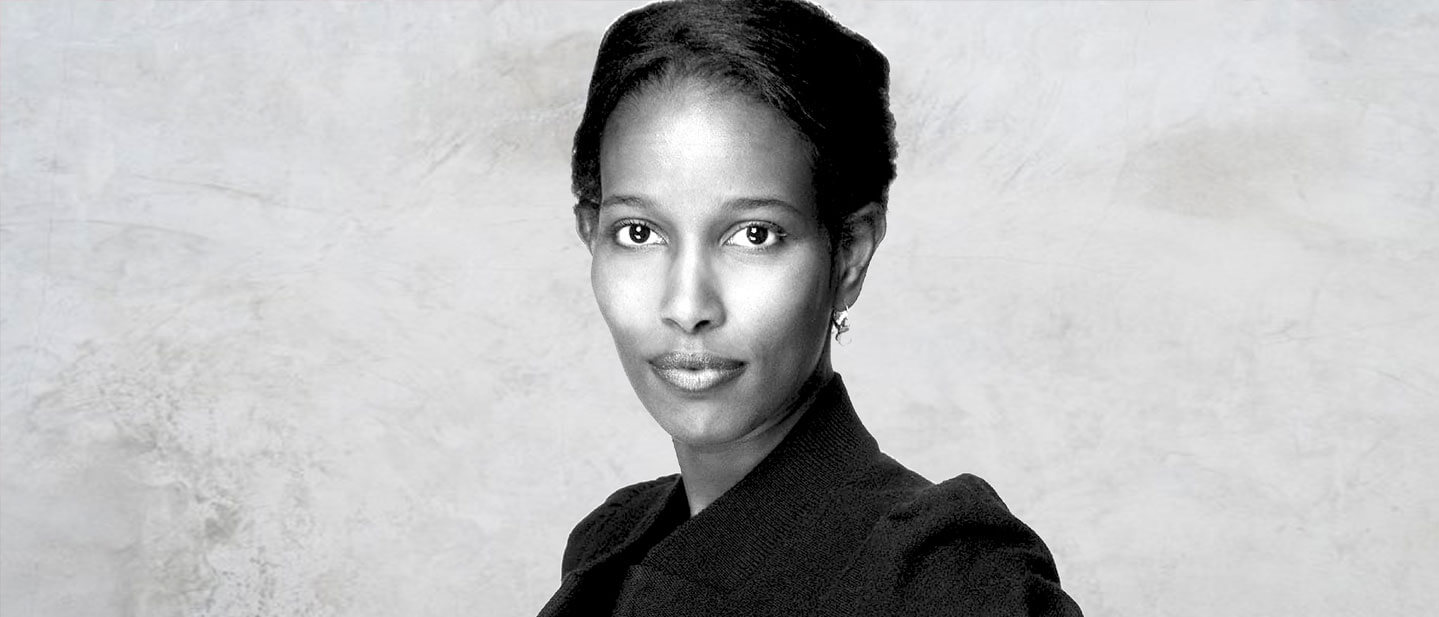
Threatened by Muslim extremists, boycotted by Western activists, Ayaan Hirsi Ali (1969—present) has literally put her life on the line to promote her ideals of rational thinking over religious dogma.
Ayaan Hirsi Ali is a Somali born Dutch American writer best known for her fierce criticism of Islam – the religion of her birth.
She sprung to international notoriety in 2004, when a Muslim extremist killed her Dutch filmmaker colleague Theo Van Gogh, knifing a hand written letter into his chest which called for Hirsi Ali to die next. The extremist targeted the pair for making a film mocking Islam’s treatment of women.
This brush with death only strengthened Hirsi Ali’s resolve to champion her ideals of enlightenment values over religious intolerance. She went on to author four books condemning Islamic teaching and practice.
Fluent in six languages, Hirsi Ali regularly travels the globe on speaking tours, skewering Islam and its local defenders in her articulate, charming style.
She doesn’t appeal to everyone though. The controversial writer has drawn the ire of Muslims and left wing groups who accuse her of anti-Islamic bigotry. Loathed by fundamentalists, she is forced to travel with armed security.
From believer to infidel
Hirsi Ali’s 2006 autobiography Infidel chronicled her extraordinary life journey from devout Somali child to Dutch politician to celebrity atheist intellectual.
Born to a Muslim family, Hirsi Ali says she was five years old when her grandmother ordered a man to undertake a female genital mutilation procedure on her. As a child, she was a believer who read the Qu’ran, wore a hijab and attended an Islamic school.
Looking back, the writer could see all that was wrong with her upbringing – violent beatings, unquestioning faith and rigid enforcement of gender roles.
Hirsi Ali says she sought asylum in the Netherlands in 1992 to flee her father’s attempt to arrange her marriage.
In her new home, the avid reader devoured the writing of enlightenment thinkers like Voltaire, Mill and Locke. These authors taught her to question blind faith and instead embrace science and rational thought.
After working as a translator and researcher, Hirsi Ali was elected to Dutch Parliament in 2002. She used her platform to criticise Islam and Muslim immigration.
Islam ‘is the problem’
Hirsi Ali holds the view that the problem with Islam is not simply a minority of extremists who give the religion a bad name:
“The assumption is that, in Islam, there are a few rotten apples, not the entire basket. I’m saying it’s the entire basket” – Ayaan Hirsi Ali
She argues violence is inherent in the core Islamic text and this is something most Muslims fail to recognise.
According to Hirsi Ali, Muslims can be categorised into three groups.
First, there are “Medina Muslims”, who seek to force extreme sharia law out of their religious duty.
Second, “Mecca Muslims”, are a majority of the faith who are devout but don’t practice violence. The problem with this group, says Hirsi Ali, is they fail to acknowledge or reject the violence in their own religious text.
The third group, “Muslim reformers”, explicitly reject terrorism and promote the separation of religion and politics.
Hirsi Ali argues this third reformer group must overcome the extremists to win the hearts and minds of a majority of Muslims.
Feminist hero or anti-Muslim bigot?
Ayaan Hirsi Ali was initially seen as a feminist activist who championed the cause of oppressed Muslim women. After moving to the US in 2006, she’s associated herself more with right wing groups than women rights’ activists. She became a fellow at the conservative think tank American Enterprise Institute and a regular interviewee on Fox News.
Married to historian Niall Ferguson, the couple have been described as “the Brad Pitt and Angelina Jolie of the intellectual right”.
She has also tweeted her support for Brett Kavanaugh, who was confirmed to the US Supreme Court despite allegations of past sexual assault.
Hirsi Ali’s right wing views and harsh criticism of Islam has seen Western activists target her alongside Muslim fundamentalists.
In 2014, Brandeis University in the US reversed its decision to award her with an honorary degree following objections from students.
In 2017, she cancelled a planned visit to Australia amid security concerns and a petition protesting her speaking appearance.
The Southern Poverty Law Center – a US advocacy group famous for defending civil rights – once categorised her as an anti-Muslim extremist.
Hirsi Ali says she can’t understand why she’s become the enemy:
“It has always struck me as odd that so many supposed liberals in the West take their side rather than mine … I am a black woman, a feminist and a former Muslim who has consistently opposed political violence”.
But if terrorists don’t deter her, activists have no chance. Hirsi Ali will continue to tread her dangerous path to promote what she believes are true liberal values.
Ethics in your inbox.
Get the latest inspiration, intelligence, events & more.
By signing up you agree to our privacy policy
You might be interested in…
Opinion + Analysis
Politics + Human Rights
Ethics Explainer: Testimonial Injustice
Opinion + Analysis
Health + Wellbeing, Politics + Human Rights, Relationships, Science + Technology
The value of a human life
Opinion + Analysis, READ
Politics + Human Rights
How to find moral clarity in Gaza
Explainer
Business + Leadership, Politics + Human Rights
Ethics Explainer: Liberalism
BY The Ethics Centre
The Ethics Centre is a not-for-profit organisation developing innovative programs, services and experiences, designed to bring ethics to the centre of professional and personal life.
Big Thinker: Noam Chomsky

Big Thinker: Noam Chomsky
Big thinkerPolitics + Human RightsRelationships
BY The Ethics Centre 12 NOV 2018
Noam Chomsky (1928—present) is one of the foremost scholars and activists of our time.
With over a hundred books, thirty honorary degrees, and a generation of aspiring leftists behind him, Chomsky’s life puts a practical lens on the motto ‘protest is patriotic’.
The human tendency towards freedom
Chomsky earned a PhD in linguistics for his theory of “universal grammar”, a theory where all people are “born knowing” shared properties that underpin all human language. These properties, which create what he calls a “language acquisition device”, are what helps babies pick complex languages up instinctively.
According to Chomsky, while language’s laws and principles are fixed, the manner in which they are generated are free and infinitely varied. This view of human nature is one that runs through Chomsky’s attitudes to linguistics or politics: we must protect the innate human tendency towards freedom.
Pessimist of intellect
Chomsky’s opposition to war and totalitarianism started early. He wrote his first paper on the threat of fascism at ten. He opposed the Vietnam War while working at MIT, a military-funded university. He called Gaza the world’s “largest open-air prison” and said the US bears full responsibility for Israel’s war crimes.
Chomsky’s public denunciations of US foreign policy in Central America and East Timor, its interference in Middle Eastern elections and the shoot-first-ask-later’ type of diplomacy have drawn widespread ire and admiration. At the height of his fame in the 70s, it was discovered the CIA was keeping tabs on him and publicly lying about doing so.
Noam Chomsky’s consistent and vocal criticism of the US government comes from the belief that he, as a member of that country, holds a moral responsibility to stop it from committing crimes. That, and it’s far more effective than criticising a government that isn’t responsible for him.
“States are not moral agents; people are, and can impose moral standards on powerful institutions.”
Manufacturing consent
In what is arguably Chomsky’s most famous work, ‘Manufacturing Consent’, he outlined mainstream media’s complicity with government and business interests. He traced the capitalist formula of selling a product at a profit to the highest bidder in relation to the media. Here, people are the product and advertisers are bidding for our attention. Compare this with the monopoly social media has over our time and the ensuing competition for available ad space, and you’ll notice this line of argument growing in prescience.
Chomsky argued the advertising market is shaped by the external conditions of the state. It’s in their best interests to placate their ‘product’ and water down anything that would spur them to act against it. Any dissenting opinion is either ignored or presented as an anomaly. This is anti-democratic, said Chomsky, for a nation is only democratic insofar as government policy accurately reflects informed public opinion.
“If we don’t believe in free expression for people we despise, we don’t believe in it at all.”
Speak truth to power
Fred Halliday, an Irish academic, has criticised Chomsky for overestimating the power and influence of the US. Harvard psychologist Steven Pinker, Oxford historian Stephen Howe, and linguist Neil Smith, have called him a fierce and aggressive moral crusader, who dismisses critics as unqualified, mistaken, or even “charlatans“.
Today, Chomsky is outspoken on what he considers the two greatest threats to humanity: nuclear war and climate change. But with NEG scrapped, the Doomsday Clock inching to midnight, and Congress split, it looks unlikely that decisive action against either of these threats will be carried out anytime soon.
Follow The Ethics Centre on Twitter, Facebook, Instagram and LinkedIn.
Ethics in your inbox.
Get the latest inspiration, intelligence, events & more.
By signing up you agree to our privacy policy
You might be interested in…
Opinion + Analysis
Business + Leadership, Relationships
So your boss installed CCTV cameras
Opinion + Analysis
Politics + Human Rights, Science + Technology
Is it right to edit the genes of an unborn child?
Opinion + Analysis
Relationships, Society + Culture
The #MeToo debate – recommended reads
Opinion + Analysis
Politics + Human Rights
Big Thinker: John Rawls
BY The Ethics Centre
The Ethics Centre is a not-for-profit organisation developing innovative programs, services and experiences, designed to bring ethics to the centre of professional and personal life.
Big Thinker: Eleanor Roosevelt
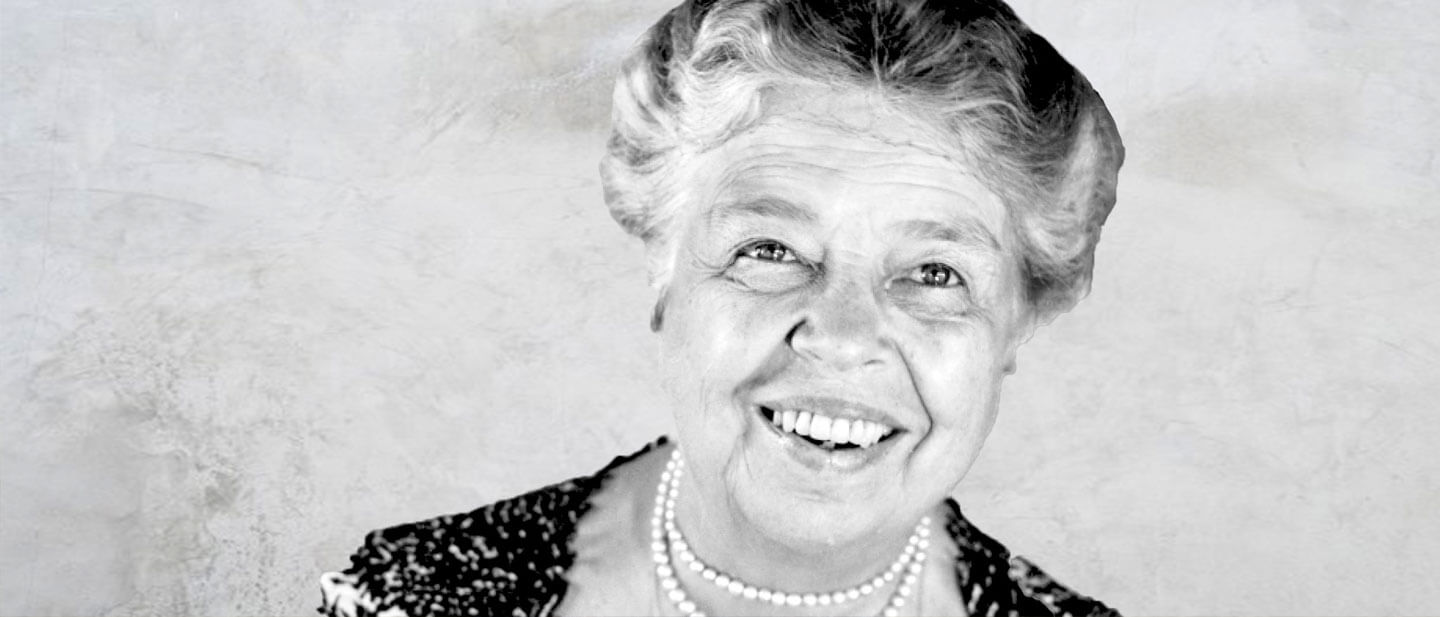
Big Thinker: Eleanor Roosevelt
Big thinkerPolitics + Human RightsRelationships
BY The Ethics Centre 11 NOV 2018
Eleanor Roosevelt (1884—1962) was an American diplomat and longest serving First Lady of the United States, best known for her work on the Universal Declaration of Human Rights.
She was affectionately dubbed “The First Lady of the World”. The thread running through her massive body of work is the single idea: fear threatens our lives and our democracies.
To live well means to live free from fear
Roosevelt lived in a world reeling from fascism. Though the Second World War had ended, the horrors of Nazism, the Holocaust and Stalinism revealed the depths people would succumb to out of fear and insecurity.
It wasn’t your garden variety type of fear she was concerned with. It was the type of widespread fear that debilitates courage, rewards conformity and stifles “the spirit of dissent”. By succumbing to this immobilising fear, Roosevelt said, we waste our lives.
“Not to arrive at a clear understanding of one’s own values is a tragic waste. You have missed the whole point of what life is for.”
Roosevelt wanted all people to know their values. As an influential public figure and patriotic American, she especially wanted this for her country.
This wasn’t without reason. The growing fear of political others (McCarthyism) and racial others (the push for segregation) mobilised Roosevelt and emboldened her stance. She didn’t want conformity to win.
“When you adopt the standards and the values of someone else or a community or a pressure group, you surrender your own integrity. You become, to the extent of your own surrender, less of a human being.”
Find a teacher in every person you meet
Roosevelt felt the danger of fear and conformity went beyond the trauma of war. It could quash “a spirit of adventure”, a way of viewing and experiencing everyday life that made you a better person.
She wasn’t talking about a thrill seeking, you-only-live-once, way of navigating the world. She meant close mindedness – denying your life experiences the opportunity to change your mind and mould your actions.
“Learning and living are really the same thing, aren’t they? There is no experience from which you can’t learn something. When you stop learning you stop living in any vital or meaningful sense. And the purpose of life is to live it, to taste experience to the utmost, to reach out eagerly and without fear for newer and richer experience.”
Roosevelt believed that everyone has something to teach you, and you are the ultimate beneficiary. Your character, your actions and your democratic polity.
And some might find being motivated by self-betterment alone to be selfish. After all, shouldn’t we do good simply because it is good? Isn’t it more noble to be motivated by what Kant called “good will”, or a moral duty?
Even if it’s possible that realizing motivation from a place of moral obligation is a higher ideal, Roosevelt was grounded in the everyday. She wasn’t concerned with principles the vast majority of a traumatised, distrustful nation would find out of reach, so she focused on the individual.
A principled life
The most remarkable thing about Roosevelt aren’t necessarily her ideals. It was her moral gumption to act on them even if they were unorthodox for the times or grossly unpopular.
She lobbied for greater intakes of World War II refugees when immigration was not supported by many Americans still reeling from the hardships of the Great Depression. She criticised her husband, President Franklin Roosevelt, for a policy intended to address the post-Depression housing market crash that segregated black and white citizens.
She broke with tradition by inviting African American guests to the White House. She spoke out against the internment of Japanese soldiers to the very population grieving the 2403 Americans they killed at Pearl Harbour (in comparison, it’s reported 55 Japanese lives were lost).
Roosevelt’s reputation for loving all has not gone unchallenged. She has been accused of taking sides in the Israeli-Palestinian conflict in a way that contravenes the Universal Declaration of Human Rights she worked on. While famous for wanting to protect displaced post WWII refugees, who were often Jewish, she felt the solution to the Israel-Palestine conflict was to resettle indigenous Palestinians in Iraq – the suggestion being she had a Zionist bias.
Roosevelt nevertheless maintains her name as a pioneer in humanitarian efforts who walked her talk. Fast forward to today’s polarised political spectrum, and her story reminds us the tools to make it through are there.
Follow The Ethics Centre on Twitter, Facebook, Instagram and LinkedIn.
Ethics in your inbox.
Get the latest inspiration, intelligence, events & more.
By signing up you agree to our privacy policy
You might be interested in…
Opinion + Analysis
Politics + Human Rights
Where do ethics and politics meet?
Opinion + Analysis
Business + Leadership, Relationships
The role of the ethical leader in an accelerating world
Opinion + Analysis
Politics + Human Rights
Sportswashing: How money and politics are corrupting sport
Opinion + Analysis
Politics + Human Rights










